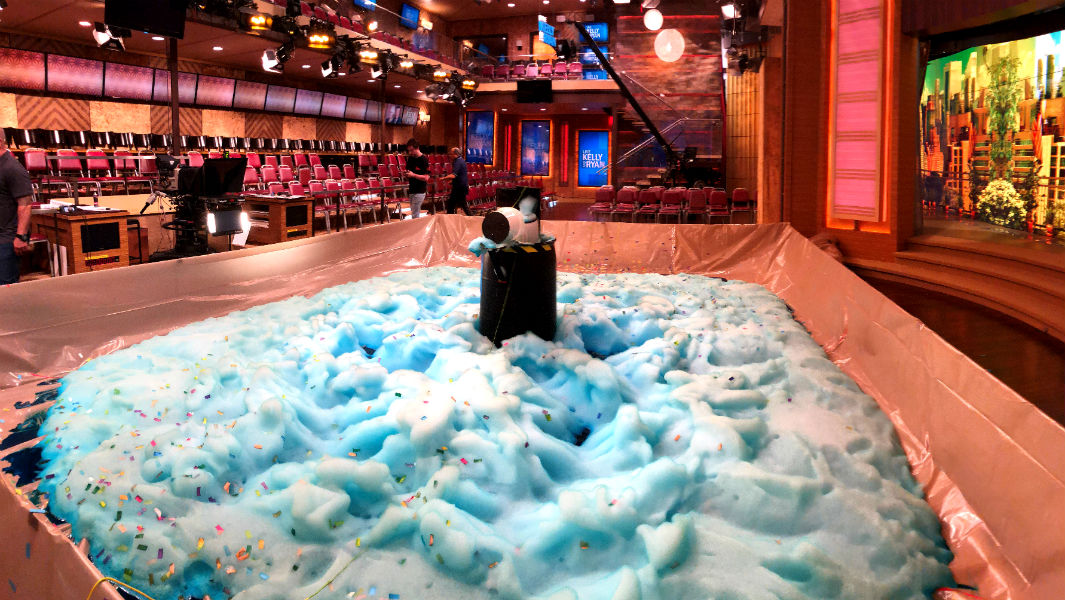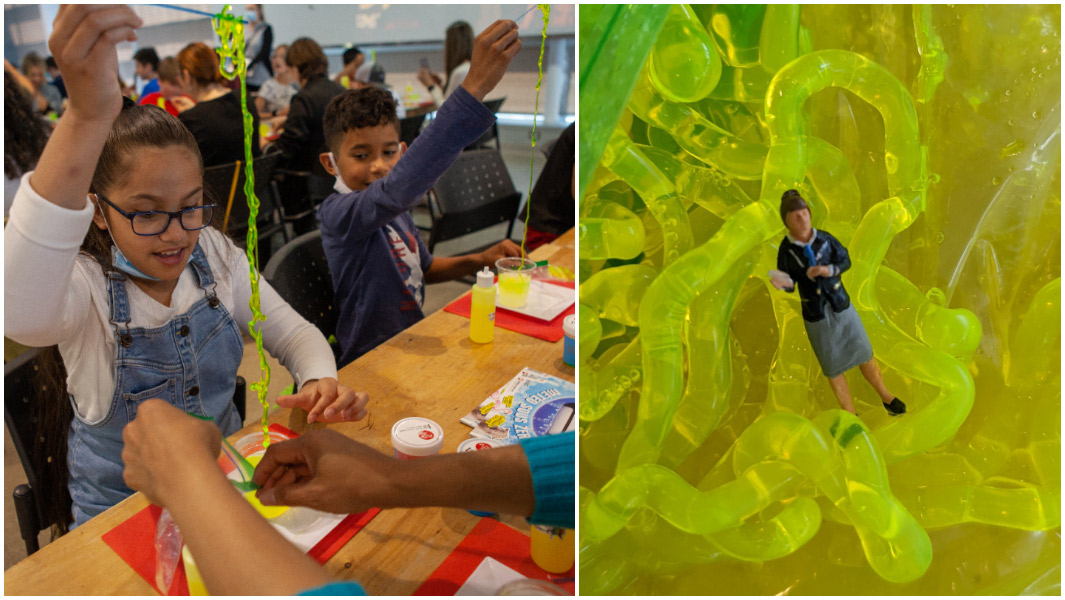


Once upon a slime, on 19 June 2022, 491 people took part in the world’s largest slime making lesson at Montreal Science Centre in Canada.
The slime students were taught by Yannick Bergeron, who is known as a "local slime star". 🤩
In addition to learning how to make the green goo, everyone also learnt the science of how it all works. Read on to learn how to make it for yourself! 🧪️

Here's the slime-making recipe used for the record attempt (make sure an adult is around to help you):
"Our slime recipe that we have been making at public events for years has broken a Guinness World Records title. It was so great!" - Christine Beaulieu, lecturer in the Department of Chemical Engineering at Polytechnique Montréal

Before we get into the science of slime-making, here are some useful definitions:
When the sodium alginate is mixed into the calcium chloride solution, the sodium atoms are replaced by calcium atoms.
The calcium joins all the molecules in the mixture together to create long polymer chains. This is called cross-linking.
Cross-linking makes the mixture more solid because the polymer chains become stuck together.
Sodium alginate is used in this way in some of your favourite foods, such as ice cream and fruit pies, to make them softer and thicker. 🍨🥧

To achieve the record of world’s largest slime making lesson, 90% of all students must stay in the class until the end. But they can’t just sit around playing on their phones – every student must create the finished product by the end of the lesson. 🧪️
One of the people who helped organize this record-breaking lesson, Sara Arsenault, wasn’t sure whether they would be able to break the record: "What if the slime doesn't take? What if people left because the kids were tired?"

However, once our adjudicator revealed the result at the end of the class, Sara could breathe a sigh of relief. 491 out of 493 students stayed until the end and they were all able to successfully create some slime. 😃
"Anything is possible with a good starting idea and organization!" – Sara Arsenault
